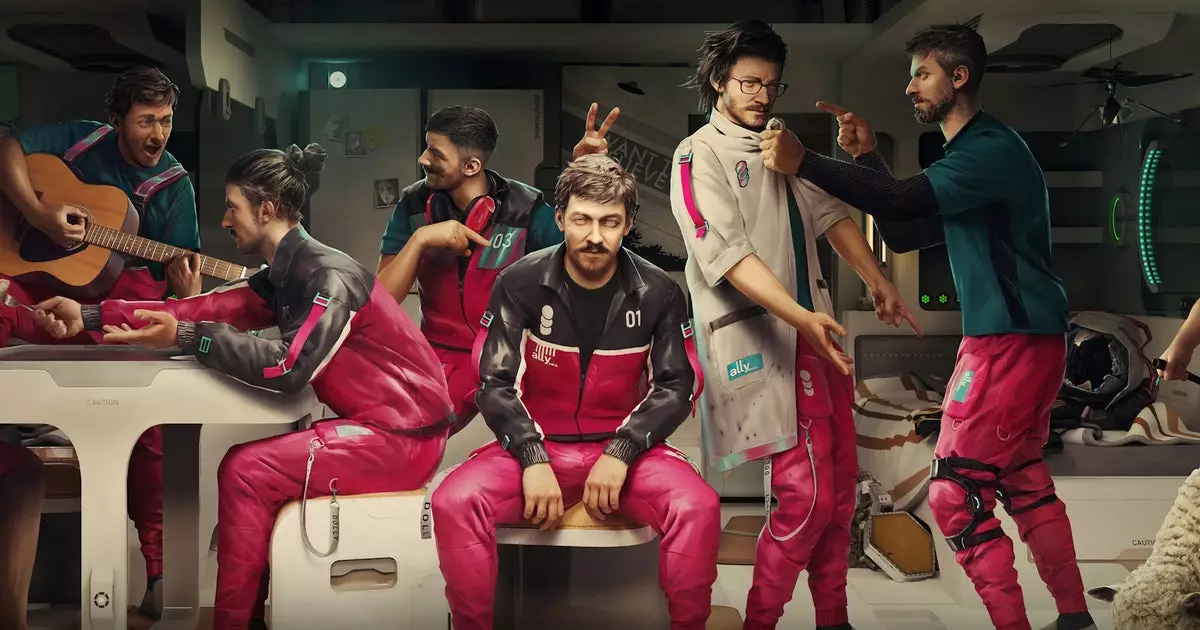The recent admission by 11 Bit Studios regarding their use of generative AI technology in their sci-fi management simulator, *The Alters*, offers a revealing glimpse into the evolving nature of game development. Far from the sensational headlines that often accompany AI disclosures, the studio’s measured employment of AI-generated assets and translations underscores a nuanced approach—one that balances innovation with tradition. Yet, this episode also exposes a critical flaw in the current gaming industry’s communication standards: transparency.
11 Bit Studios’ candid admission emerged not through a formal announcement but via a Bluesky post, apologizing for a minor oversight—an AI-generated placeholder text unintentionally remained in the final game assets. While covering only a sliver of the game’s massive content (with AI-driven translations representing roughly 0.3% of *The Alters*’ total text), the company’s decision to reveal these details belatedly rather than proactively reflects broader industry challenges about the integration and disclosure of AI-generated content.
The Limited but Strategic Use of AI: Efficiency Meets Artistry
The studio clarifies that AI was employed in a very constrained and pragmatic manner—primarily as temporary placeholders for graphical textures and in last-minute translation tasks related to parody movie subtitles within the game. These AI tools were not orchestrating narrative design, character development, or the core storytelling elements-that remain meticulously handcrafted by the human creative team. This distinction is crucial because it highlights that AI is a supplementary aid rather than a substitute in high-quality game development.
Particularly striking is 11 Bit’s explanation regarding translation. Under extreme time pressure, the developers resorted to AI localization for external parody films included in the game’s in-world experience. This decision was framed as a stopgap, with promises to replace AI-generated translations with professional human localization during a forthcoming hotfix. Here, the tension between efficiency and quality control becomes evident: AI offers speed and cost-saving advantages, but not without a potential dip in authenticity or accuracy—which 11 Bit seems keen to rectify.
Transparency as an Ethical Imperative in Gaming
What truly stands out in this situation is the company’s acknowledgment that they should have been upfront from the outset. This self-criticism is refreshing but also exposes a gap in industry norms. Currently, there is no universally standardized approach to disclosing AI use in games, and platforms like Steam do have disclosure requirements that were not fully met in this case. The omission was not malicious, but it highlights the need for clearer guidelines and expectations.
As AI tools become more ubiquitous—helping with everything from asset generation to voice acting and procedural content—developers must embrace transparency not only as a compliance matter but as an ethical commitment to their players. Gamers have valid concerns about creativity, authenticity, and the potential erosion of human artistry in beloved media. Open communication fosters trust and allows consumers to make informed choices about the content they invest in.
Balancing Innovation with Respect for Craftsmanship
Ultimately, the 11 Bit Studios example serves as a microcosm of the broader dialogue developers face: how to leverage cutting-edge AI tools without sacrificing the essence of what makes a game distinctive and emotionally impactful. Creative industries thrive on human vision, and while AI can support productivity, it is not a panacea. The “very limited manner” in which AI was deployed here ensures that the soul of *The Alters* remains in the hands of actual creators.
Notably, 11 Bit’s candid approach—even if delayed—should be seen as a positive step. Instead of reacting defensively or denying AI use, they have positioned themselves as accountable creators willing to learn from their missteps. This attitude will hopefully inspire other studios to proactively disclose AI involvement and contribute to industry-wide conversations about responsible innovation.
The future of game development will undoubtedly be interwoven with AI assistance, but the ultimate success lies in harmonizing technology with artistry—and fostering transparent, respectful relationships with an informed gaming community.

